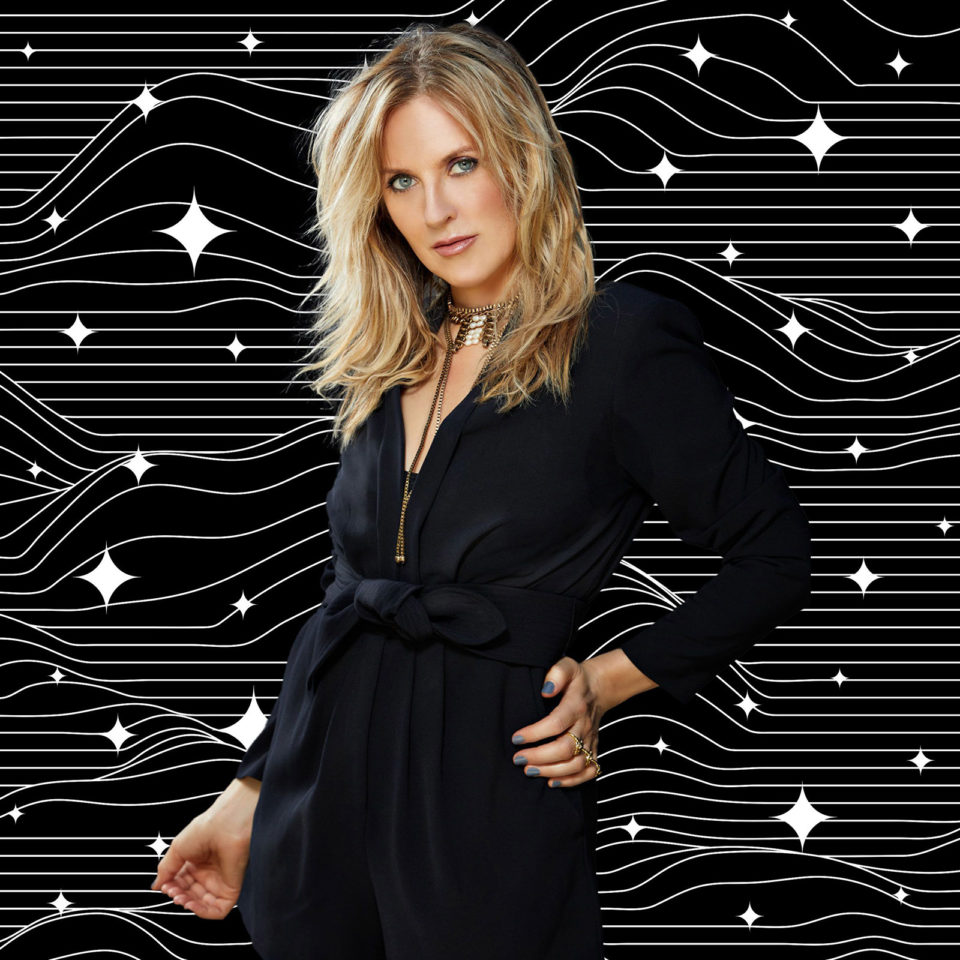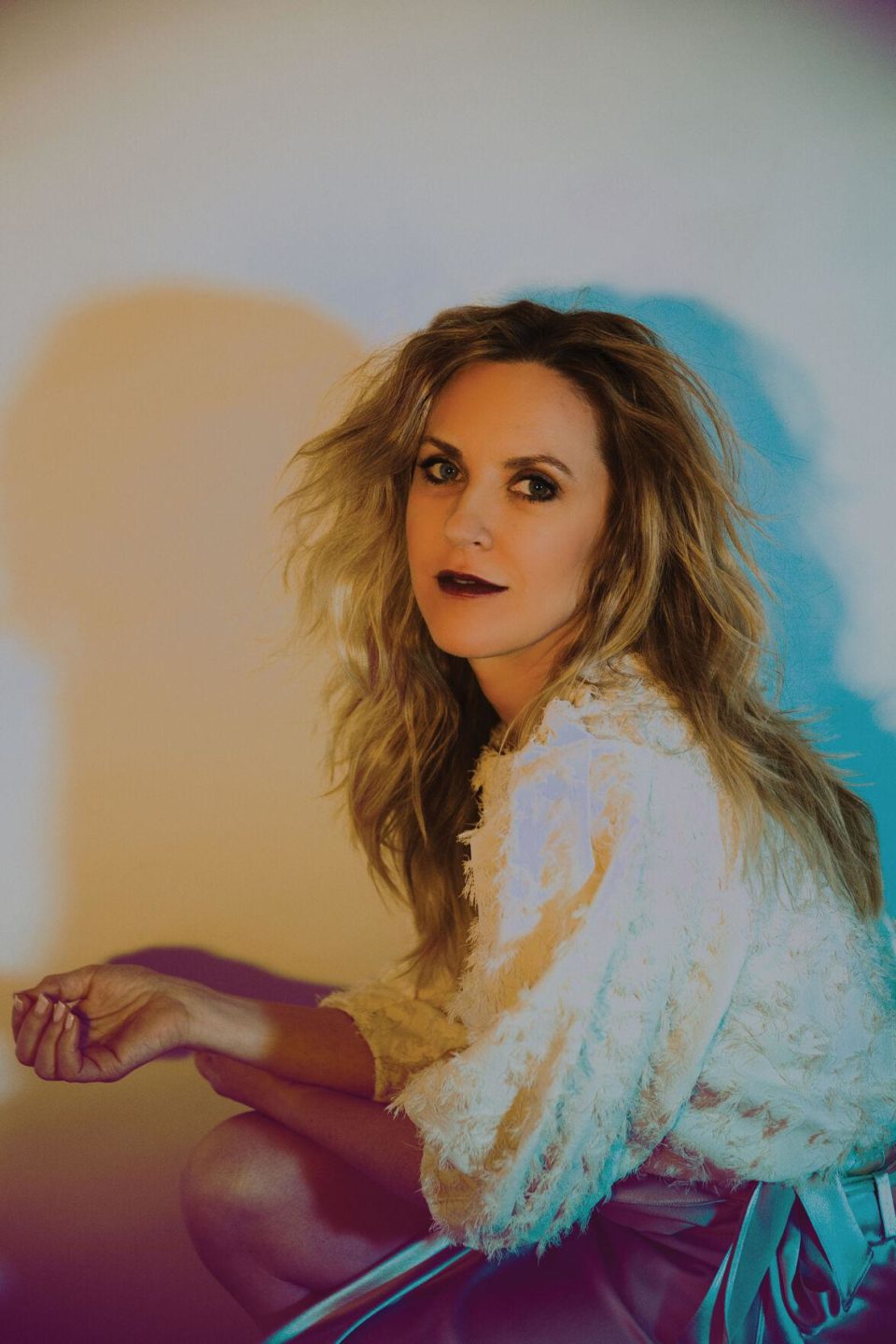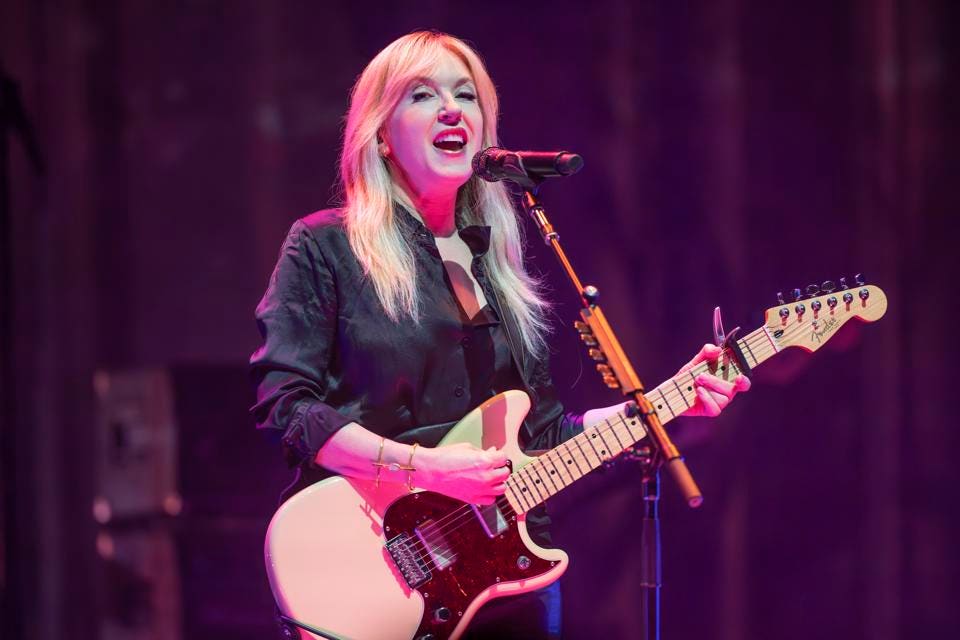By Vivian Manning-Schaffel
The Cut | November 23, 2023
As a Gen-Xer, I’m not surprised when Liz Phair doesn’t want to Zoom. Instead, we meet on the phone, leaving me to imagine if a few stray silver strands had woven into the flaxen gloss of her blonde hair, what groovy shade of lipstick she might’ve slicked on, or what she might be wearing.
After all, Phair was a pivotal ’90s indie “It” girl who suffered her share of scrutiny. A self-described introvert, she’s reluctantly been out there ever since releasing her debut album, Exile in Guyville, in 1993. A lo-fi, song-for-song rebuttal to the Rolling Stones’ Exile on Main Street, Guyville blew minds with its melodic candor about self-respect and ambition amid the myriad indignities of 20-something romances. Navigating the ’90s indie-music scene as a woman usually meant tiptoeing through a male-dominated cesspit of misogynists in horn-rimmed glasses and flannel who may have aspired toward more progressive ideals than their metalhead counterparts, but were often clumsy and clueless about translating those ideals into respectful behaviors. Armed with a flip of blonde hair, great legs, catchy guitar riffs, and strong melodies, Phair wrote lyrics that reflected the way women actually spoke, liberally sprinkling “fuck” and “cunt” into her verses (back then, it was barely done) and smiling with a confident come-hither look while reading these boy-men for filth and giving them the metaphorical flick for punctuation.
In the years since, between follow-up albums — Whip-Smart, Whitechocolatespaceegg, Liz Phair, and Soberish — and a memoir, Phair is going back to her roots by celebrating the 30th anniversary of Exile in Guyville with a tour, swinging by Kings Theatre in Brooklyn on November 24. A germaphobe with a father who was an infectious-disease doctor during the AIDS epidemic, Phair says she needed a “really strong sense of purpose” to hit the road again. “When the pandemic came, in my mind I’d been waiting for this, which doesn’t help — sort of like, Oh, God, it’s here,” she admits. “Concurrently, I’m humbled and amazed and grateful that Guyville, this little record that could, is still relevant and powerful to people 30 years later. I’ve watched it be recognized here and there in ways that just stun me.”
Candor is still in Phair’s “It”-girl DNA. She admits touring was never a part of her formative rock-star fantasies, but now she finds the road rewarding. “I think performing has been a very underrated part of my journey because I had no natural ability for it, but I learned so much about myself,” she says. “You have to literally let yourself be seen to perform. I know that sounds obvious, but it’s actually not obvious at all. It’s actually very subtle and takes commitment, willingness, and awareness to bring forth to let people see you. Otherwise, your voice is going to be tight. Strangled. You’re going to pull back like a horse on tight reins. You have to open your heart to get that note.”
You wrote Guyville in response to the big-dick energy in the Rolling Stones album Exile on Main Street, right? And in the music business?
I don’t feel like the music business was the only place I was experiencing the big-dick energy. I feel like it was everywhere, growing up with all these older male cousins and brothers and whatever. It’s just everywhere you went, the bosses and the teachers and the principals … it just felt like there was this world that girls weren’t really privy to, or weren’t welcome in.
It was like that scene in the Barbie movie when Barbie comes home and finds Ken turned her house into Ken’s Mojo Dojo Casa House. I always felt like we were stuck in Ken’s house. Did you feel the same?
I did! And I tried so hard to fit in. I did my utmost to be what I thought boys wanted. We obsessed over it. But as I moved into college and went to Oberlin, which is a very progressive school, just like the Barbie movie, it was like going into another dimension. They started to explain why these systems are in place, what the antecedents were, and what the dynamics of that kind of depression is. The scales fell from my eyes. I wouldn’t say I became radicalized, because I was annoyed with the progressives just as much as I was annoyed with the conservatives, but everything became clear for some reason, right around that age.
You seemed comfortable playing with ideas of objectification in your art, exploring the duality of hating objectification yet wanting to be desired. At the time, it wasn’t common for a woman to use “fuck” freely in a song, though Chrissie Hynde kind of gave us permission. But it was a big deal, in “Flower,” to say you were a “cunt in spring.” It’s like a feminist reclaiming. How did you feel about approaching that song?
That’s exactly how I felt. It was a feminist reclaiming and I think that’s what a lot of the media missed it at first. They just thought it was confessional. They thought that this wild child burst onto the scene, but I was anything but. I was actually a good girl who was adventuring beyond what I had been before and discovering the world anew as the person I was in my spirit, rather than in my upbringing.
How would you define an “It” girl? What does that concept mean to you?
“It” girl to me is an amalgam of several factors. You have somebody channeling some kind of goddess energy, some sort of archetype that we all can relate to or are familiar with, like, This is the latest vengeful fiery goddess, or This is the latest Venus, goddess of love. But at the same time, there’s always the inscrutable mysteriousness of, how does she get that way? How does she maintain it? What is she ingesting that I’m not — and I don’t mean food and substances — I mean like, what part of culture is she drawing from? What was her background? An “It” girl to me is someone that you instantly Google and want to find out how they were raised. It immediately starts, in my mind, an archaeological dig into this person’s life. An “It” girl isn’t just one thing. She’s always someone who reflects different facets to other people so that many people find appeal and depth in her. Some people think an “It” girl is just whoever is popular and who goes to the parties, but I don’t think that’s ever true, even if she is a party girl, because if you dig in, it’s always more interesting than that.
“It” girls need to read. You need to be aware of other times in history and what’s currently on the cutting edge. In my definition, you can’t be an “It” girl if you aren’t aware of the interesting parts of culture that are happening right now, or the interesting parts of culture that happened in the past that shape the way we are now.
After Guyville came out, you quickly became an “It” girl. How did that feel at the time versus how it feels now?
It’s kind of like where you think about your own fat distribution on your body; “If I could take some of that from here and put it there,” you know what I mean? If I could take some of the “It” girl I didn’t enjoy back then and give it to me now and take a little bit away from her, we would have been happier.
It felt very overwhelming to go from being the observer to being the observed. I think most people who get into performing want to be observed. They are almost dying for it. But I was the opposite. Not like, Oh, poor me, I became famous, but it was so unexpected and I had not pre-pictured it. I had dreamed about making a record that was like, You guys have made me listen to your stupid conversations about what good music is and what bad music is for the last 15 years. Fuck you. Here’s good music. I was so tired of boyfriends and guys and teachers lecturing me constantly about what I ought to learn from them that I just wanted to put something out that shut the conversation down.
How would you say the whole “It”-girl concept and experience has changed since you went through it?
Back then, “It” girls were pitted against each other. Everyone divided up into teams. If you like one girl, you’re on that team, and if you like another, you’re on that other team. I think now the idea that women support women is just a given, and I think that’s a lovely environment to be in. It felt very much more fraught and competitive back then, to me. The more successful I got, the more isolated from my peers I felt, and it wasn’t just because of the attention. I wrote a song about it, “Stars and Planets.” I found myself in, like, a Pamplona race. You think that you won something, but actually, you just got entered into the bigger race.
What advice do you give younger singer-songwriters when they come to you? What do they ask you most often?
I’ve helped people get out of contracts that they shouldn’t have been in, or at least guided them away from choosing that. I think people who go into art learn about the business after they’re successful, in a way. I would suggest to anyone that you need to have a solid foundation in yourself, outside of anything that a review or an outcome could give you. You need to have a strong internal sense of confidence that comes from finishing school, getting a degree, working in a job, all the kinds of things artists don’t want to do but you need because there are so many people in our industry that buckle under the emotional stress.
Which “It” girls have you admired in your life?
Oh my God. Who are my “It” girls? So many people! Annie Lennox, Debbie Harry. I was obsessed with the Raincoats, that really made a huge difference to me. The Raincoats’ songwriting completely blew me away when I was introduced to that by John Henderson, my frenemy roommate back in Guyville. Neneh Cherry. Anyone I saw who looked untamed but still had brilliant artistry. I was always looking for people that were edgy and surprising. I needed that. It was always the people that looked like they were teetering between triumph and disaster that I really related to.
What do you do on a typical Saturday night off? Where do you go out?
I’m more of a foodie these days, so I like a good restaurant, preferably outside because of the pandemic. I used to go out all the time. If I had a free night, I was probably heading up to the Village recording studio in Santa Monica, meeting people, then going out from there, or going to four parties a night. Now I think about what happened to us as a culture and watching how people reacted to it; I’m so much less tolerant of small talk. I don’t care what your social rules are anymore. I’ve completely molted an entire persona over the pandemic and I’m only interested in people who interest me.
So your idea of a good night out is, like, having dinner with a close friend and just catching up?
Or, like, a group of really interesting people. I will move heaven and earth if the New York literary editors are in town. I don’t want to just be around people I know. I feel like I spent so much time looking for something to do, and now it’s completely the reverse. I will only be called out of my very interesting private inner life to go do stuff that inspires me or amazes me.
What are your “It”-girl must-haves?
Your own transportation, so that you can come and go whenever you want anywhere. You have to have a high level of skill at a phantom good-bye, without pissing anyone off, where you show up somewhere and everyone feels acknowledged but then you disappear and you don’t get in trouble for it. I think you should have attire that leaves an impression. I don’t care what kind of impression, but I think you should either have good taste or hit the target you’re aiming for.
Where do you like to shop?
Now, I do it online. I buy too much lingerie from Fleur Du Mal. That’s a big problem. It’s a little bit aspirational because I’m still kind of getting my body back in shape, but it’s good.
So, do you still consider yourself an “It” girl?
No! You know what I think? I’m an “It” woman. I definitely feel like an “It” woman.
This interview has been edited for clarity and length.
Featured Image: Photo-Illustration: by The Cut; Photo: Eszter+David








